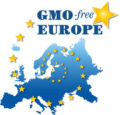Declaration of Warsaw on GMO Moratorium: Save the future for Europe

This Declaration of Warsaw was adopted by the 300 participants from about 30 countries on 26th May 2009.
The participants of the 4th Organic Marketing Forum in Warsaw – International meeting on processing and marketing of organic products and raw materials – call for an EU-wide moratorium on the authorization and the commercial planting of genetically modified organisms (GMOs). In the wake of six EU member states banning the planting of MON810 and in light of the rapid increase in GMO-free regions in Europe, there has never been a better moment for a moratorium than now.
This moratorium should be used to:
- rethink EU legislation and strengthen regional self-determination;
- redefine risk assessment according to the precautionary principle while considering socio-economic impacts;
- support GMO-free, diverse agriculture and ensure food sovereignty;
- devise actions for protecting and supporting GMO free regions for the production of seeds and crops;
- secure nature protection areas in the interest of a sustainable development against the harmful impacts of an intensive farming with GMO.
The participants of the 4th Organic Marketing Forum in Warsaw conclude:
- GMO-free agriculture and food are in accordance with the will of the majority of citizens in all European countries;
- the demand for environmentally friendly and socially responsible produced organic food increased in the last years. Organic products best meet the demands of the customers;
- sustainable food production which eschews the use of genetic engineering is the best strategy for farmers and consumers, both today and tomorrow;
- the farming of GMO did not achieve acceptance in Europe. The Bt maize variety is cultivated on less than 0,1 % of the area dedicated to crop cultivation. Thousands of farmers are threatened by unwanted contamination with genetically engineered traits and the loss of income due to that contamination. On the other hand the decision for a GMO-free production will be a key issue in winning new international markets; and
- the costs for controlling and separation of materials on the level of processing and trade stand in utter disproportion to the claimed benefits of these GMO plants for the acting farmers and industry. The actors of GMO need to assume the costs of the agro-genetic complex.
We call upon the agro-chemical companies to no longer abuse the problem of world hunger in order to justify the introduction of GMOs. Practical experience belies this misleading propaganda which we consider to be false and unethical.
We are grateful to the citizens, farmers and organisations of Europe who show the way for all of Europe with their declaration of GMO free regions.
